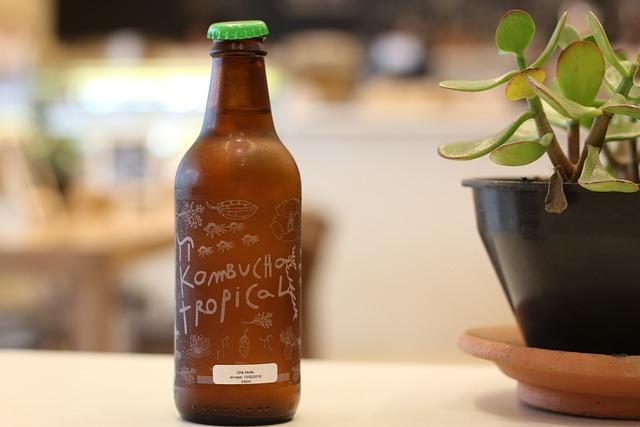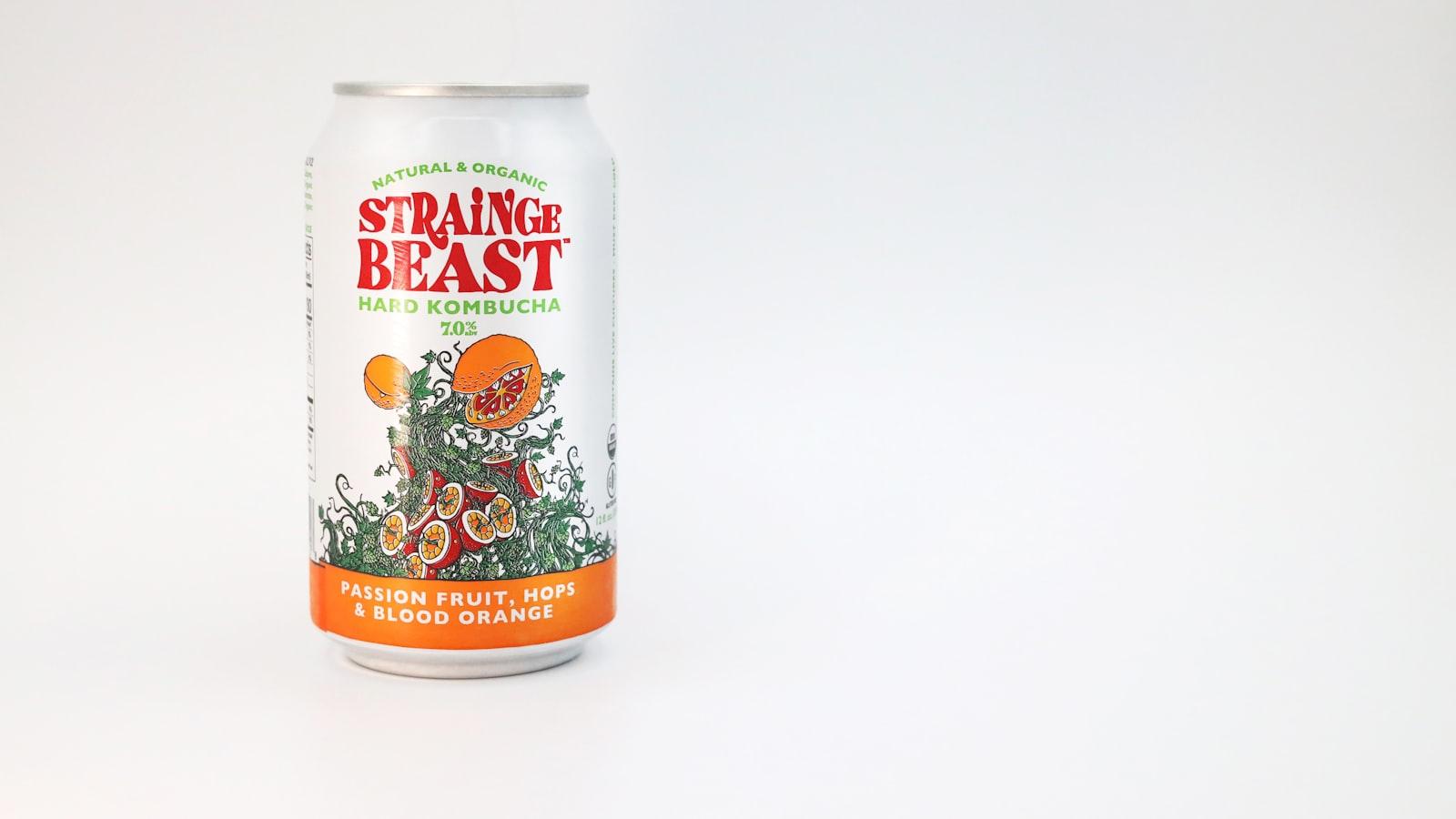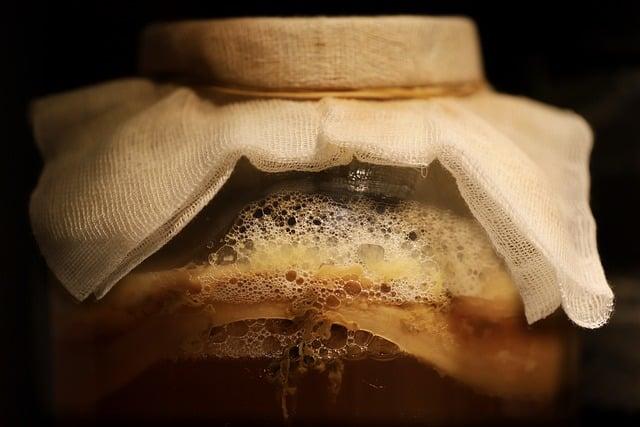In the world of fermented beverages, kombucha reigns supreme as a trendy and health-conscious drink option. However, a recent controversy surrounding a particularly mysterious "kombucha case" has left many scratching their heads. Join us as we unravel the intriguing tale of this enigmatic beverage and the unexpected twists and turns it has taken.
Table of Contents
- Introduction:
- Unpacking the Kombucha Case: A Detailed Analysis of the Controversy
- Key Ingredients in Kombucha: Understanding the Potential Health Benefits and Risks
- Navigating the Legal Landscape: Recommendations for Kombucha Manufacturers and Consumers
- Moving Forward: Tips for Safely Enjoying Kombucha While Minimizing Risks
- Q&A
- Wrapping Up
Introduction:
Kombucha, the ancient fermented tea beverage, has gained popularity in recent years for its supposed health benefits and unique taste. Made from a blend of brewed tea, sugar, and a symbiotic culture of bacteria and yeast (SCOBY), kombucha is often referred to as the "miracle elixir." With a slightly tangy flavor and fizziness, it has become a favorite drink among health enthusiasts and foodies alike.
Originating in China over 2,000 years ago, kombucha has a rich history steeped in mystery and folklore. Believed to have detoxifying and energizing properties, this probiotic-rich drink has been consumed for centuries as a natural remedy for various ailments. As kombucha continues to grow in popularity, its health benefits and unique flavors make it a fascinating subject for exploration and experimentation in the world of beverages.


Unpacking the Kombucha Case: A Detailed Analysis of the Controversy
**The Origins**
It all started when a small artisanal kombucha brand was accused of mislabeling their products as organic when, in fact, they were not certified by the USDA. This led to a snowball effect, with consumers questioning the transparency and authenticity of the brand.
**The Controversy Unfolds**
As more information came to light, it was revealed that the kombucha company had been using artificial flavors and sweeteners in their products, despite marketing themselves as all-natural. This raised concerns about the health implications of consuming these hidden ingredients and ignited a heated debate within the health food community.


Key Ingredients in Kombucha: Understanding the Potential Health Benefits and Risks
Kombucha, a fermented tea drink, has gained popularity in recent years for its potential health benefits. Understanding the key ingredients in kombucha is essential for evaluating the risks and benefits of consuming this trendy beverage. One key ingredient in kombucha is black tea, which provides antioxidants and polyphenols that may have anti-inflammatory properties. Another crucial component is SCOBY, a symbiotic culture of bacteria and yeast that facilitates the fermentation process.
- Black Tea
- SCOBY
While kombucha offers potential health benefits, it is essential to be aware of the potential risks associated with consuming this beverage. One risk is the fermentation process itself, which can lead to contamination if not properly controlled. Additionally, kombucha contains acetic acid, which may cause digestive issues in some individuals. Understanding the key ingredients in kombucha can help consumers make informed decisions about incorporating this fermented drink into their diet.
- Acetic Acid


Navigating the Legal Landscape: Recommendations for Kombucha Manufacturers and Consumers
When it comes to the legal landscape surrounding kombucha, it is crucial for both manufacturers and consumers to be aware of the regulations and recommendations in place. For manufacturers, ensuring compliance with FDA guidelines and labeling requirements is essential to avoid potential legal issues. It’s important to stay informed and proactive in navigating the ever-changing legal environment.
For consumers, understanding the labeling and ingredient information on kombucha products is key. Look for transparency in manufacturing processes and ingredients used. Additionally, be aware of any health claims made by manufacturers and do your own research to verify their validity. By being informed and vigilant, both manufacturers and consumers can contribute to a safer and more transparent kombucha market.


Moving Forward: Tips for Safely Enjoying Kombucha While Minimizing Risks
When it comes to enjoying Kombucha, it’s important to prioritize safety while minimizing potential risks. One key tip to keep in mind is to always choose reputable brands that follow proper brewing and bottling techniques. This can help reduce the likelihood of contamination and ensure a safer drinking experience.
Additionally, it’s wise to start slow when introducing Kombucha into your diet. Begin with small servings to gauge how your body responds, especially if you’re new to probiotic-rich drinks. And don’t forget to listen to your body – if you experience any negative effects, it’s best to consult with a healthcare professional. By following these tips, you can safely enjoy the benefits of Kombucha while minimizing any potential risks.
Q&A
Q: What is the “kombucha case” and why is it significant?A: The “kombucha case” refers to a legal dispute between a kombucha company and the Alcohol and Tobacco Tax and Trade Bureau (TTB) over the alcohol content in their product. It is significant because it raises questions about how alcoholic beverages are classified and regulated.
Q: How did the kombucha company get into legal trouble with the TTB?
A: The kombucha company’s product was found to have a higher alcohol content than the legal limit for non-alcoholic beverages. This led to an investigation by the TTB and ultimately a legal dispute over whether the product should be classified as an alcoholic beverage.
Q: What are the implications of the “kombucha case” for the kombucha industry?
A: The “kombucha case” has raised concerns within the kombucha industry about the potential for increased regulation and scrutiny over alcohol content in their products. It also highlights the need for clearer guidelines and standards for how kombucha is classified and regulated.
Q: How can consumers ensure they are purchasing compliant kombucha products?
A: Consumers can look for kombucha products that are labeled as compliant with TTB regulations and have been tested for alcohol content. It is also important to purchase kombucha from reputable companies that are transparent about their production processes.
Q: What steps can kombucha companies take to avoid getting into legal trouble with the TTB?
A: Kombucha companies should regularly test their products for alcohol content and comply with TTB regulations for labeling and classification. They should also stay informed about any changes in regulations and be proactive in addressing any potential issues with alcohol content in their products.
